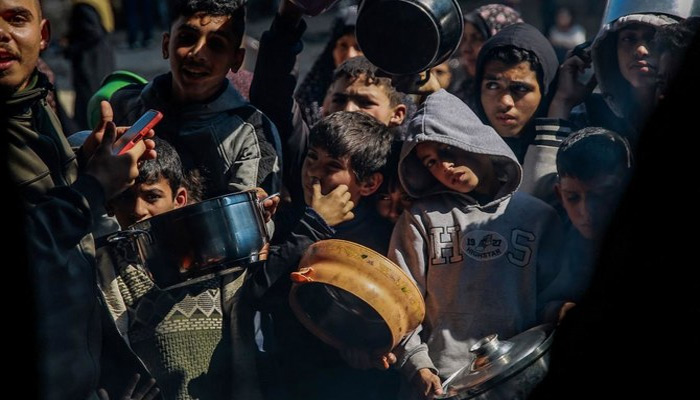Some 575,000 people in Gaza are now on the verge of starvation, and essentially all of the local population is relying on food assistance to survive, said Ramesh Rajasingham, coordination director of the UN’s humanitarian office.
“As grim as the picture we see today is, there is every possibility for further deterioration,” Rajasingham told the UN Security Council on Tuesday. “At this stage, very little will be possible while hostilities continue.”
Israel has been carrying out a military campaign in the Gaza Strip since Hamas invaded southern Israel on October 7, killing some 1,200 people and kidnapping 250 more. Since the fighting began, nearly 30,000 Palestinians have been killed, according to health officials in the Hamas-run territory.
Discussions on Israel pausing military operations in Gaza in exchange for the release of more hostages held by Hamas have intensified in recent days. President Joe Biden said Monday negotiators were making progress toward a temporary pause in fighting between Israel and Hamas and that a cease-fire could begin as soon as the start of next week.
The UN warnings come as humanitarian agencies, including its own report trouble shipping aid. Border crossing closures, movement restrictions and “onerous” vetting procedures by Israel are all getting in the way of timely delivery, Rajasingham said.
Maurizio Martina, deputy director general of the UN’s Food and Agriculture Organization, told the Security Council in the same session that “the entire food supply chain has been affected in different ways.”
“Civilian infrastructure, including that essential for the production, processing and distribution of food has been severely damaged, destroyed or made inaccessible,” he said.
Israeli representatives at the UN did not immediately respond to a request for comment. The Security Council has failed to pass a resolution calling for a cease-fire in the Gaza Strip as US and Russia have vetoed various efforts.
“Which one of these briefings is a straw that will break the camel’s back?” Samuel Žbogar, Slovenia’s envoy to the UN, asked the Security Council. “The situation has been crystal clear for some time. We should all have been convinced by now that our action was needed long time ago.”

